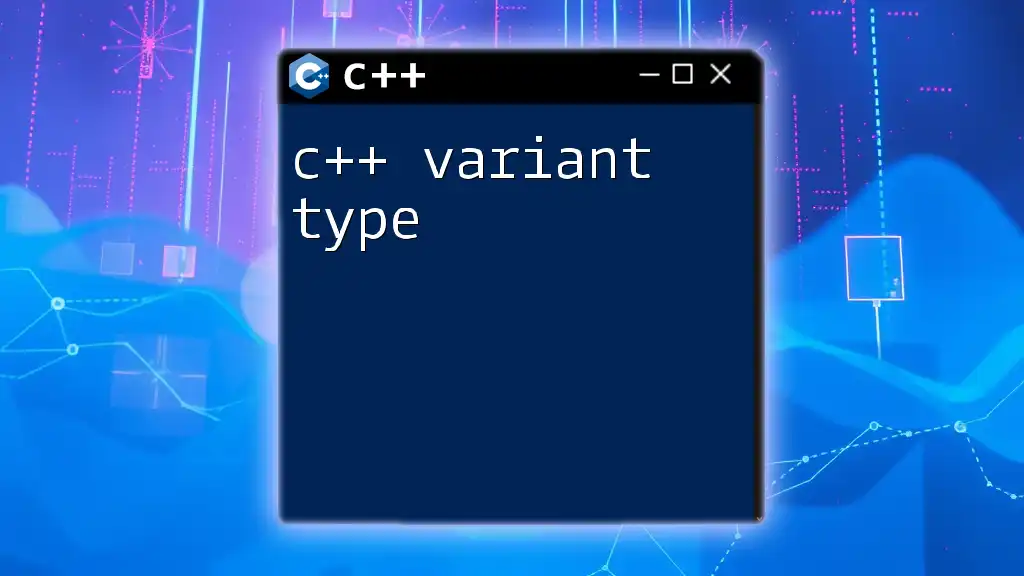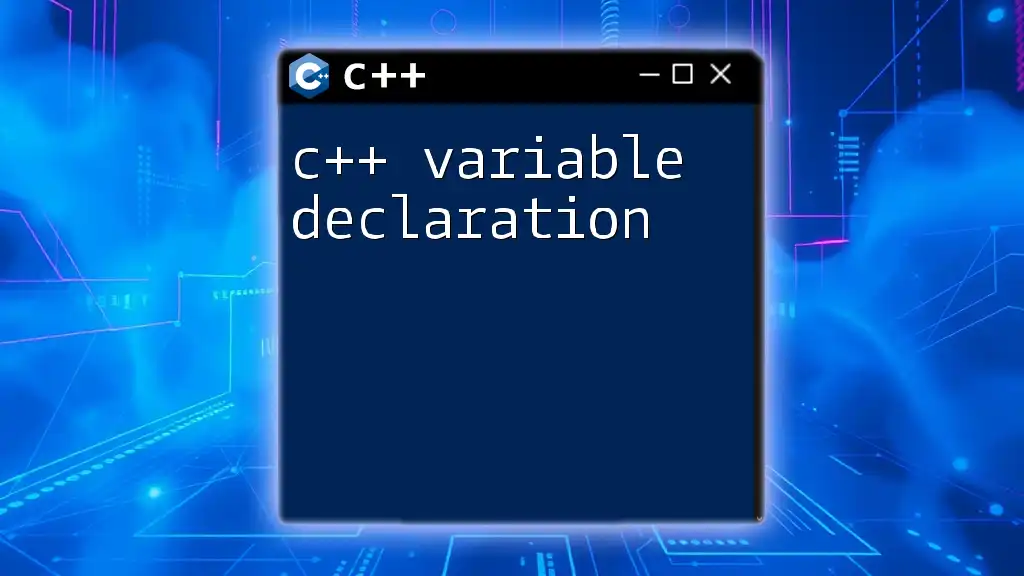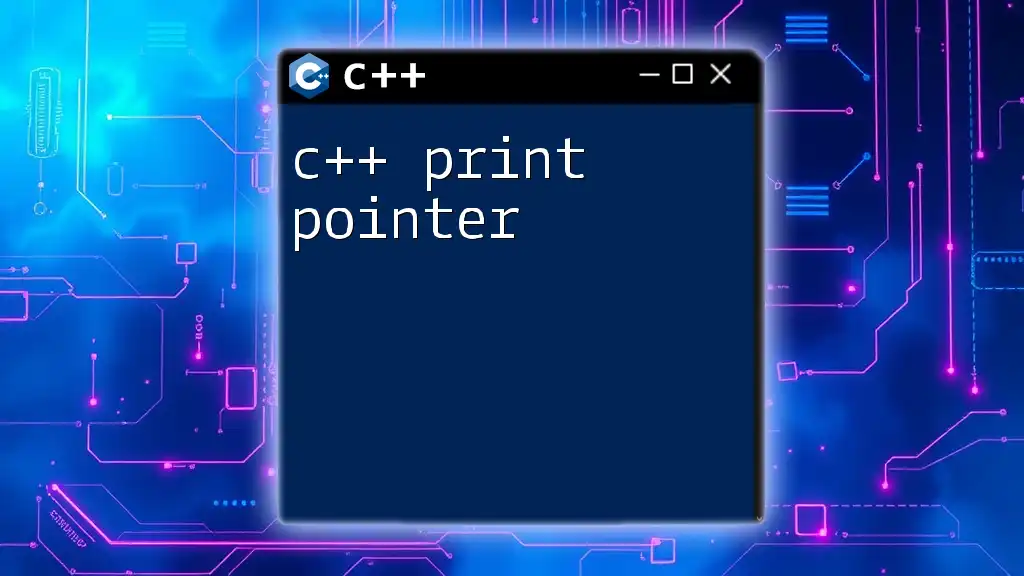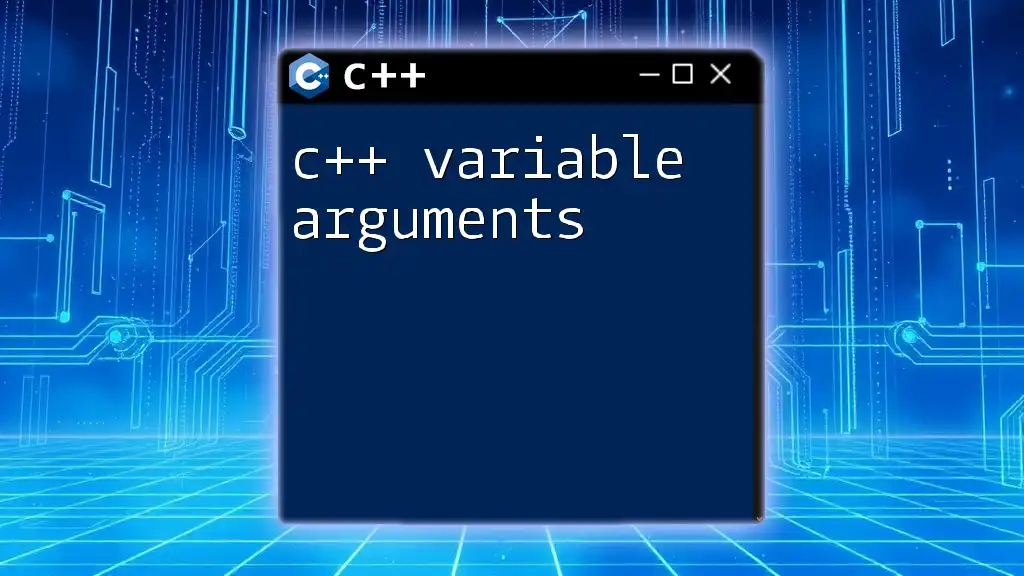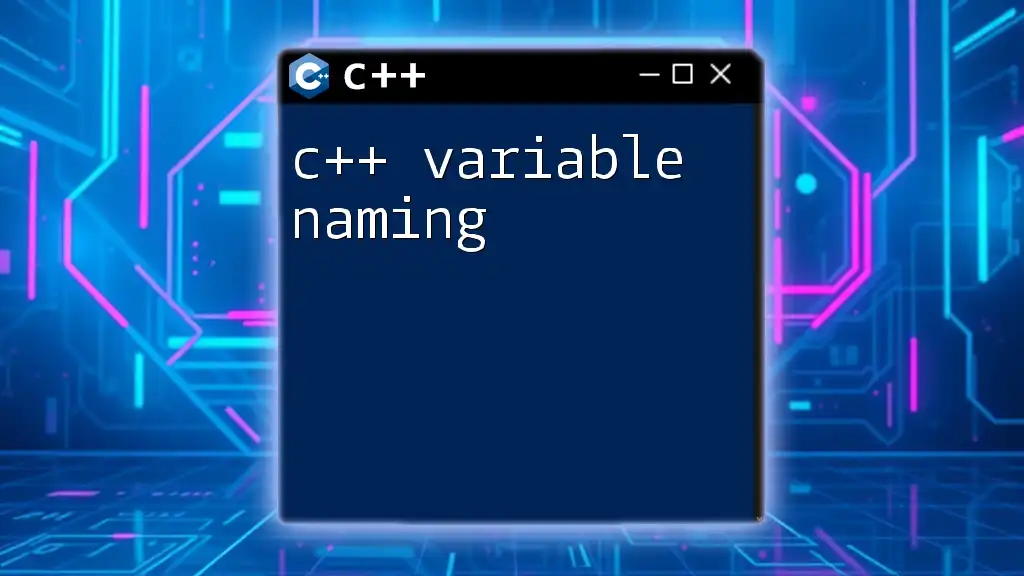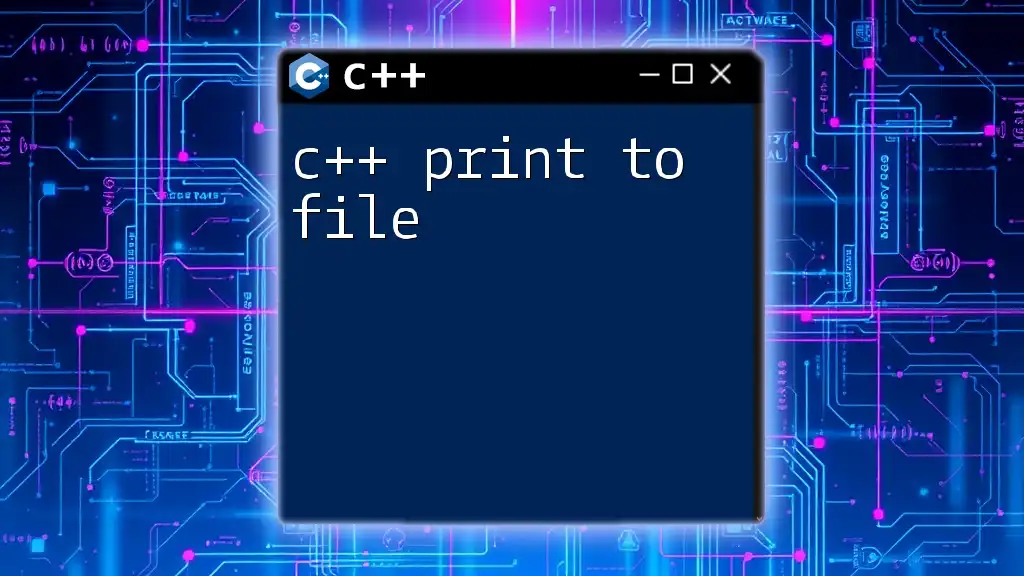C++ `std::variant` is a type-safe union that can hold values of different types, allowing you to store and manipulate a value that can be one of several specified types. Here’s a simple example:
#include <iostream>
#include <variant>
#include <string>
int main() {
std::variant<int, float, std::string> var;
var = 42; // holds an int
std::cout << std::get<int>(var) << std::endl; // outputs: 42
var = 3.14f; // now holds a float
std::cout << std::get<float>(var) << std::endl; // outputs: 3.14
var = "Hello"; // now holds a string
std::cout << std::get<std::string>(var) << std::endl; // outputs: Hello
return 0;
}
What is a Variant Type?
A variant type allows you to define a variable that can hold values of different types, providing a more flexible approach compared to traditional data types. Unlike fixed data types such as `int` or `double`, a variant can hold values of multiple types defined at compile-time. This feature enhances the ability to write generic and robust code.
Benefits of Using Variants
-
Flexibility: With a variant, developers can store values of varying types in a single variable, simplifying the management of heterogeneous data.
-
Type Safety: Variants provide a level of type safety that reduces runtime errors often associated with using common constructs like `void*`. The compiler enforces type checks, ensuring that only valid types are accessed.
-
Ease of Use: Because variants encapsulate the complexity of multiple types, they lead to cleaner and more maintainable code. This simplicity also extends to debugging, making it easier to trace data flow and identify issues.
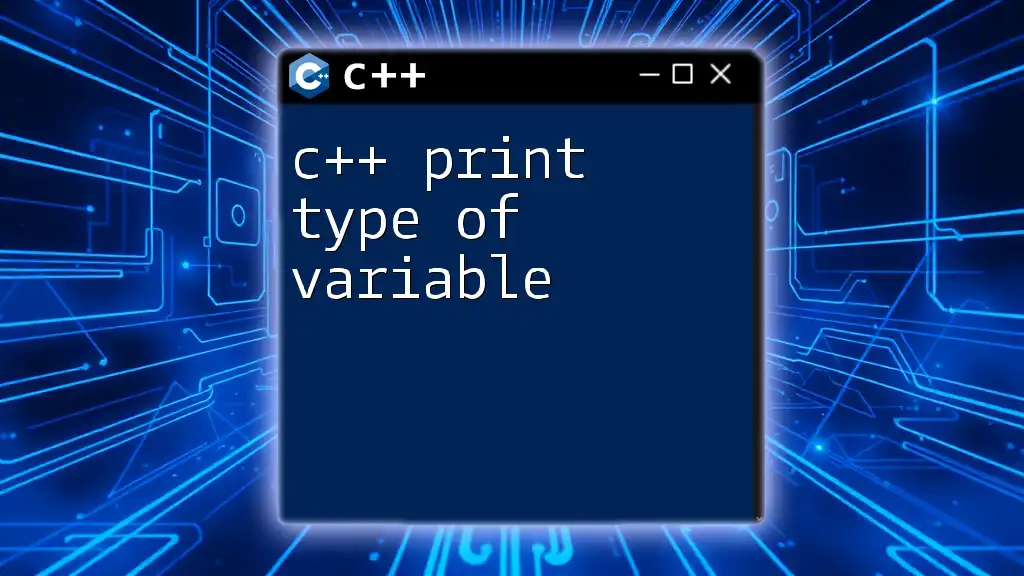
Overview of std::variant
Introduction to std::variant
Introduced in C++17 as part of the Standard Library, `std::variant` is a powerful data structure that serves as a type-safe union. Declaring a `std::variant` is straightforward:
#include <variant>
std::variant<int, double, std::string> myVar;
This snippet declares `myVar`, which can store either an `int`, `double`, or `std::string`. It’s a prime example of C++ polyglot programming, where a single variable can take multiple typing forms.
Key Features of std::variant
-
Type-safe unions: Unlike traditional unions, which lack type checking, `std::variant` is designed to be a safer alternative, ensuring that you only access the current type.
-
Storage: When using `std::variant`, be aware that it may incur a slight overhead due to the additional type tracking it performs. However, this cost is often offset by the safety and flexibility it provides.
-
Type index: `std::variant` can hold a number of types, but only one at a time. You can retrieve the index of the currently stored type using `std::variant_npos` to identify what type is currently held.
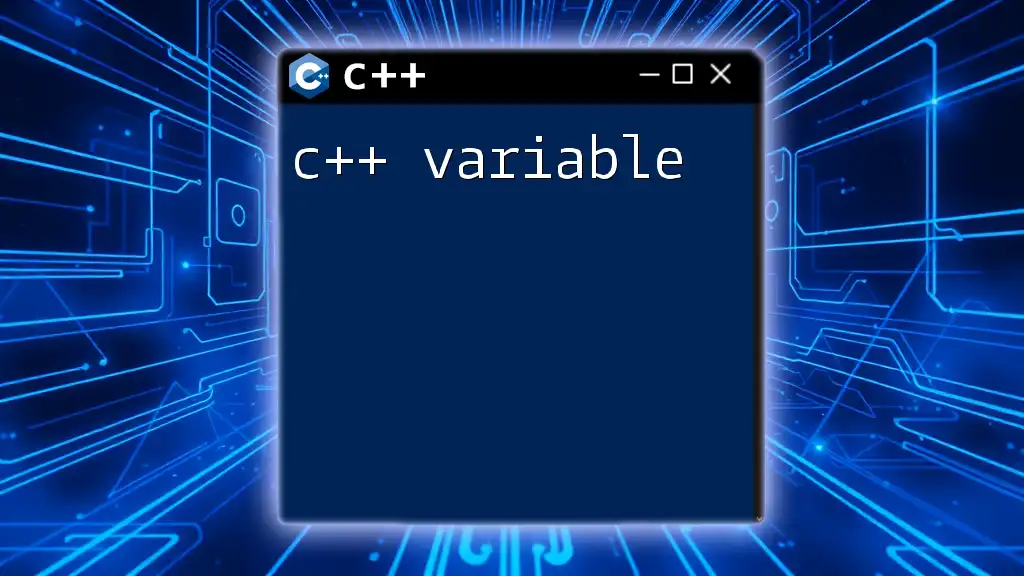
How to Use std::variant
Declaring and Initializing std::variant
Declaring a `std::variant` is similar to declaring any standard data type. It can be initialized in various ways, such as directly assigning a value:
myVar = 10; // assigns int
myVar = 3.14; // reassigns double
myVar = "Hello"; // reassigns std::string
Accessing Values
Using std::get
To access the value currently stored in `std::variant`, you can use `std::get()`. Depending on the type you retrieve, a corresponding value is returned:
myVar = 10; // assigns int
int a = std::get<int>(myVar); // accessing int
If the type you are attempting to access does not match the current type of `myVar`, a `std::bad_variant_access` exception will be thrown.
Using std::visit
For more complex use cases, `std::visit()` provides an elegant solution to apply a visitor pattern across the variant types. It accepts a callable object and applies it to the current value:
struct Visitor {
void operator()(int i) const { /* logic for int */ }
void operator()(double d) const { /* logic for double */ }
void operator()(const std::string& s) const { /* logic for string */ }
};
std::visit(Visitor{}, myVar);
This approach allows you to gracefully handle differently typed values without extensive conditional logic.
Error Handling with std::variant
std::bad_variant_access
It’s important to handle potential access issues with `std::variant`. If you attempt to access a value of a type that isn’t currently held, the `std::bad_variant_access` exception will be thrown. Here’s how you might catch and handle this exception:
try {
auto value = std::get<double>(myVar);
} catch (const std::bad_variant_access& e) {
// Handle error
}
This error handling ensures that your program can respond appropriately, maintaining robustness.
Checking the Current Type
To determine the current type held by a `std::variant`, use `std::holds_alternative()`. This function allows you to check the stored type before accessing it, ensuring type safety:
if (std::holds_alternative<int>(myVar)) {
// The current type is int, you can safely operate on it
}
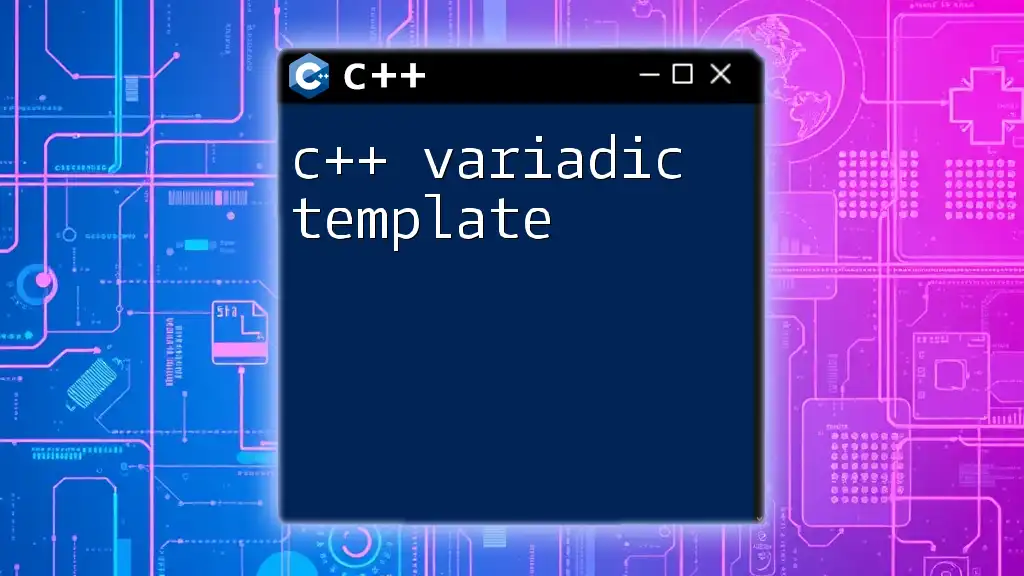
Real-World Applications of std::variant
Simplifying Complex Data Structures
In complex data structures, `std::variant` can streamline code. For example, when dealing with a vector of heterogeneous types, you could declare a vector to hold variants of various data types, significantly reducing the complexity:
std::vector<std::variant<int, double, std::string>> mixedData;
mixedData.push_back(42);
mixedData.push_back(3.14);
mixedData.push_back("Text");
This paradigm elegantly handles multiple types contained in the same vector, simplifying both the construction and manipulation of the data.
Handling JSON-like Data
When building a JSON parser or dealing with key-value pairs where the values can have multiple types, `std::variant` comes in handy. It allows for an efficient representation of the variety of data types contained in a typical JSON object:
using JsonValue = std::variant<int, double, std::string, std::vector<JsonValue>>;
// Example JSON-like structure
std::map<std::string, JsonValue> jsonData;
jsonData["age"] = 30;
jsonData["height"] = 5.9;
jsonData["name"] = "Alice";
In this example, `JsonValue` can encapsulate any type of data that might appear in JSON format.
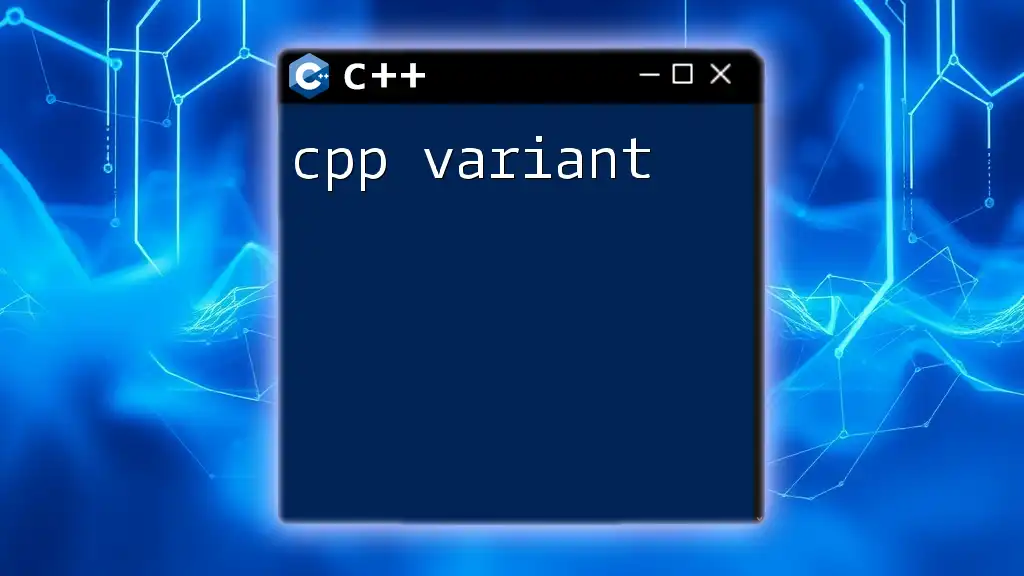
Best Practices with std::variant
When to Use std::variant
Understanding when to implement `std::variant` is crucial. It shines when handling situations where a variable can take on one of many types but remains efficient and type-safe. For instance, when creating APIs or libraries that must accommodate multiple types without becoming cumbersome or unsafe.
Common Pitfalls and How to Avoid Them
While incredibly useful, `std::variant` should be used judiciously. Over-reliance can lead to performance issues, especially in high-frequency computational contexts. Always weigh the flexibility and safety it offers against any potential performance costs.

Conclusion
The `std::variant` type is a fantastic, modern C++ construct that enhances data handling capabilities. It not only fosters cleaner, type-safe code but also allows programmers the flexibility to create applications that can handle various data forms with ease. Experimenting with `std::variant` in your projects will deepen your understanding of type management in C++ and enhance your overall programming skill set.

